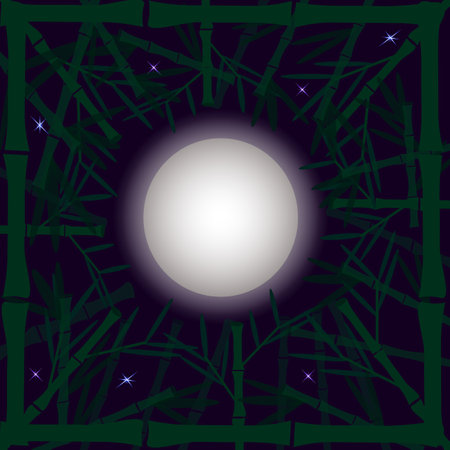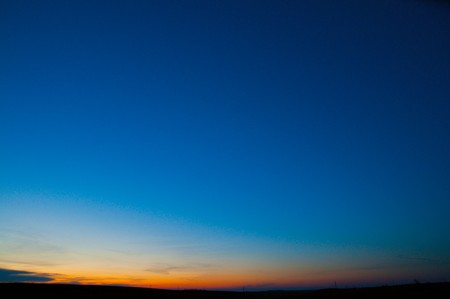1. Introduction: Eclipses and the American Skies
From backyard stargazing parties to coast-to-coast live streams, solar and lunar eclipses have a special place in American culture. Whether you remember watching the Great American Eclipse of 2017 with friends or catching a dramatic blood moon late at night, these celestial events never fail to spark awe and curiosity across the United States. But what exactly are eclipses, and why do they matter so much to both astrology fans and pop culture?
Solar vs. Lunar Eclipses: What’s the Difference?
| Solar Eclipse | Lunar Eclipse | |
|---|---|---|
| What happens? | The Moon moves between the Earth and Sun, blocking sunlight. | The Earth moves between the Sun and Moon, casting a shadow on the Moon. |
| When does it occur? | During a New Moon | During a Full Moon |
| Visibility | Only certain regions see it (narrow path) | Visible from anywhere on the nighttime side of Earth |
Eclipses in American Astrology and Pop Culture
Eclipses aren’t just scientific marvels—they hold deep meaning in astrology too. In U.S. astrology circles, an eclipse is often seen as a cosmic turning point that can shake up zodiac signs, set new trends, or bring hidden truths to light. Social media lights up with horoscope predictions, while local communities organize viewing events and themed parties. Even folks who don’t follow astrology get swept up in eclipse fever—after all, when the skies darken midday or turn red at night, it feels like something big is happening.
The U.S. Zodiac Experience: Why Location Matters
Because eclipses are only fully visible from specific areas, your location in America can change how you experience both the sky show and its astrological impact. From Miami to Seattle, people gather under different skies, but everyone feels connected by these rare moments when day turns to night or the moon glows with mystery. In this series, we’ll explore how where you are in the U.S.—and what you see overhead—shapes your personal zodiac experience during each eclipse.
2. Mapping the Eclipse: Regional Visibility Across the U.S.
When a solar or lunar eclipse sweeps across the United States, not everyone gets the same front-row seat. The path and visibility of an eclipse can vary widely depending on where you live—from the beaches of California to the skyscrapers of New York City. Let’s break down how different regions experience these celestial events and what it means for stargazers and zodiac enthusiasts from coast to coast.
How Eclipse Paths Differ by Region
The path of totality—where an eclipse is most visible—doesn’t cover every corner of America each time. Instead, it traces a unique route that sometimes favors one region over another. Here’s a quick look at how recent eclipses have been visible across the country:
| Region | Recent Eclipse Visibility | Typical Viewing Experience |
|---|---|---|
| West Coast (California, Oregon, Washington) | Partial or near-total eclipses; occasional full visibility in northern areas | Mild dimming, cooler temperatures, sometimes dramatic skies along Pacific coastlines |
| Midwest (Illinois, Missouri, Nebraska) | Frequent paths of totality for major solar eclipses | Full darkness during peak eclipse, major community viewing events |
| South (Texas, Louisiana, Georgia) | Often partial views, but some totality in select years | Warm weather gatherings, strong interest in family-friendly watch parties |
| Northeast (New York, Pennsylvania, New England) | Mainly partial eclipses; occasional totality in northern states | Crowded city parks and rooftop parties when visibility is good |
| Southeast (Florida, Carolinas) | Mostly partial eclipses; rare totality | Spectacular sunrise or sunset effects over beaches and coastal towns |
Eclipse Events as Community Experiences
No matter where you are in the U.S., eclipses spark local excitement. In the Midwest and parts of the South where totality hits, small towns often become temporary hotspots for skywatchers. On the coasts, people gather at scenic overlooks or on rooftops for a glimpse—even if only partial—of these rare moments.
From Stargazing to Zodiac Energy
This regional variation isn’t just about astronomy—it also influences how Americans connect with their zodiac signs during these cosmic events. Many believe that being under the direct shadow of an eclipse can supercharge your astrological experience. Whether you’re a Leo soaking up West Coast sun or a Scorpio catching a rare totality in Texas, your location plays a big part in your personal eclipse story.

3. Eclipse Energy and the Zodiac: Astrological Perspectives
How Eclipses Influence the Zodiac Signs in the U.S.
In American astrology circles, eclipses are often seen as cosmic events that bring sudden change, awakenings, or shifts in energy. When an eclipse is visible in a specific region—like parts of the United States—many believe its influence is felt more strongly by people living there. Astrologers pay special attention to where the eclipse falls on the zodiac wheel and which signs are most directly impacted.
Common U.S. Astrological Beliefs About Eclipses
Many American astrologers agree that both solar and lunar eclipses act like energetic spotlights, highlighting certain areas of our lives depending on their zodiac placement. Here’s how eclipses are commonly thought to impact each sign according to popular U.S. astrology perspectives:
| Zodiac Sign | Typical Eclipse Impact (U.S. Astrological View) |
|---|---|
| Aries | New beginnings, leadership opportunities, sudden motivation boosts |
| Taurus | Financial shifts, value reassessment, changes around security |
| Gemini | Communication breakthroughs, relationship news, short trips |
| Cancer | Home life changes, emotional revelations, family matters highlighted |
| Leo | Creative inspiration, self-expression upgrades, romantic surprises |
| Virgo | Health focus, routine shake-ups, work environment adjustments |
| Libra | Partnership shifts, legal or contract news, balance challenges |
| Scorpio | Deep emotional releases, transformation moments, shared resource updates |
| Sagittarius | Travel opportunities, belief system growth, education surprises |
| Capricorn | Career shifts, public recognition, authority dynamics change |
| Aquarius | Community involvement spikes, friendship news, tech changes |
| Pisces | Spiritual insights, intuition increases, closure or healing moments |
Eclipse Paths and Regional Experiences in America
A key point among U.S. astrologers is that if an eclipse path crosses over your city or state—or even just the continental U.S.—the collective energy feels stronger for those living there. For example, a total solar eclipse visible across much of the Midwest might be interpreted as a signal for collective new beginnings or bold societal shifts for Americans during that season. Astrologers might suggest setting intentions or performing rituals that align with your sun or rising sign when the eclipse is visible from your area.
Popular Practices: Embracing Eclipse Energy in Daily Life
It’s common in American astrological culture to host eclipse-viewing gatherings or intention-setting circles during these events. People might journal about their experiences based on their zodiac sign’s predicted impact or connect with local communities online to share stories about how the eclipse energy shows up in their lives.
4. Local Lore: Cultural and Historical Eclipse Traditions
When it comes to eclipses, every corner of the United States has its own unique blend of customs, superstitions, and legends. Over time, these traditions have mixed with astrological beliefs, creating a rich tapestry that reflects both local history and zodiac influences. Let’s explore how Americans from different regions experience eclipses in ways that are truly their own.
Regional Eclipse Customs and Beliefs
| Region | Custom/Superstition | Astrological Connection |
|---|---|---|
| The South | Some families cover mirrors and windows during an eclipse, believing it protects against bad luck or spirits entering the home. | This practice is often linked to Southern beliefs about the Moon’s power over emotions (Cancer) and home life. |
| The Midwest | Communities host eclipse picnics, where people gather outdoors to watch the event together and share “eclipse cake.” | This tradition ties into themes of unity and celebration, resonating with Leo’s sense of community during solar events. |
| The Southwest | Native American stories tell of celestial animals like coyotes or snakes swallowing the Sun or Moon during an eclipse. | These tales reflect a deep respect for natural cycles, similar to the transformative energies associated with Scorpio and Pisces. |
| The Northeast | Folklore suggests making wishes during an eclipse for good fortune, but not starting new projects until it passes. | This echoes Mercury’s influence in Virgo and Gemini—cautioning against major moves when cosmic energy is unsettled. |
| The Pacific Northwest | Some communities hold moonlit hikes or drum circles to “honor the shadow” and reconnect with nature’s rhythms. | This ritual aligns with earthy Taurus vibes, encouraging grounding during celestial shifts. |
Blending Astrology and American Culture
Eclipses have always sparked curiosity across the U.S., and Americans have found creative ways to merge astrology with local culture. Whether it’s checking your horoscope before heading out to view the sky or participating in family traditions passed down through generations, these moments connect people to both the cosmos and each other. From backyard barbecues under a darkened sky to whispered wishes at midnight, the U.S. eclipse experience is as diverse as its regions—and every bit as magical.
5. Harnessing the Eclipse: Modern Zodiac Practices in America
Embracing the Eclipse: A Blend of Regional and Zodiac Traditions
In today’s America, eclipses aren’t just astronomical events—they’re moments for communities to come together and for individuals to connect with their zodiac signs in new ways. Depending on where you are in the country, how people prepare for and celebrate an eclipse can vary widely. From big city gatherings to small-town rituals, Americans mix local customs with astrological meaning to create unique experiences.
Zodiac-Inspired Eclipse Rituals Across the U.S.
Many Americans who follow astrology see eclipses as powerful times for setting intentions or letting go of old habits. Here’s a look at some popular modern practices:
| Region | Zodiac Influence | Common Practices |
|---|---|---|
| West Coast (e.g., California, Oregon) | Emphasis on sun/moon signs and new beginnings | Crystal circles, group meditations, intention-setting ceremonies on beaches or parks |
| Midwest (e.g., Illinois, Ohio) | Focus on grounding earth signs and community | Potluck dinners with friends, neighborhood viewing parties, sharing birth chart readings |
| South (e.g., Texas, Georgia) | Lively fire sign energy and celebration | Backyard bonfires, live music events under the sky, astrology-themed BBQs |
| Northeast (e.g., New York, Massachusetts) | Intellectual air sign gatherings and discussions | Museum or rooftop eclipse events, panel talks about astrology’s meaning during eclipses |
The Role of Social Media: Sharing the Zodiac Vibe Nationwide
Social media platforms like Instagram, TikTok, and Facebook play a huge role in shaping how Americans engage with eclipses. Hashtags like #EclipseVibes, #ZodiacRitualsUSA, and #MoonMagic trend as people share their eclipse experiences. Astrologers post real-time guidance based on zodiac influences for each region. Live streams of gatherings, ritual tutorials, and even meme-sharing help connect people across the country—even if they’re not in the path of totality.
Eclipse-Related Social Media Trends:
- Zodiac-specific affirmation posts: Users share affirmations tailored to their sun or rising sign during the eclipse window.
- DIY Ritual Reels: Short videos showing how to make moon water or set up a crystal grid at home.
- Eclipse Viewing Parties Live: Groups go live from rooftops or backyards to include followers nationwide.
- Astrology Challenges: Influencers invite followers to journal or meditate based on their sign’s theme for this eclipse.
The Power of Community—In Person and Online
No matter where they are in the U.S., people use eclipses as a chance to connect—with themselves, their communities, and their zodiac roots. Whether it’s attending a midnight drum circle in Arizona or joining a virtual moon ritual hosted from Brooklyn, Americans find ways to blend local culture with astrological wisdom every time an eclipse passes overhead.


